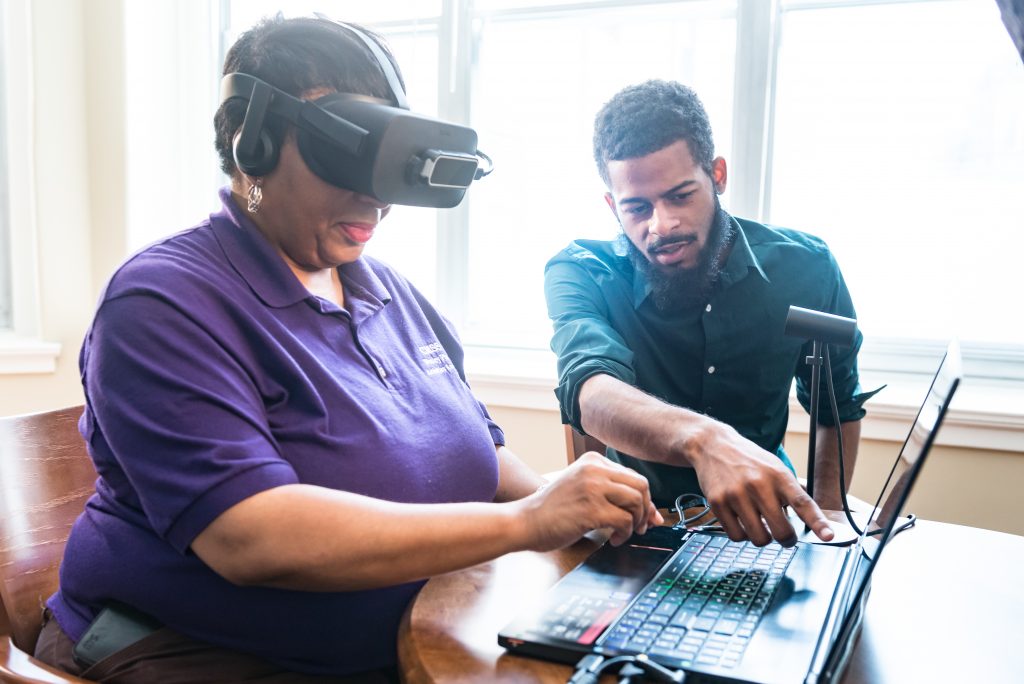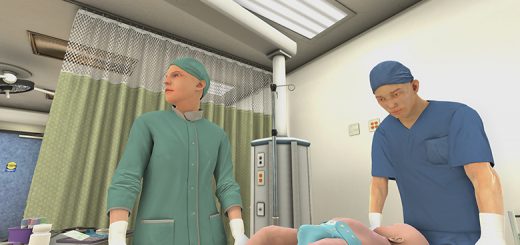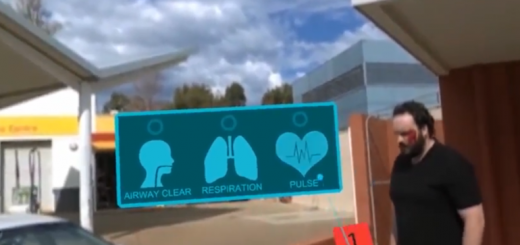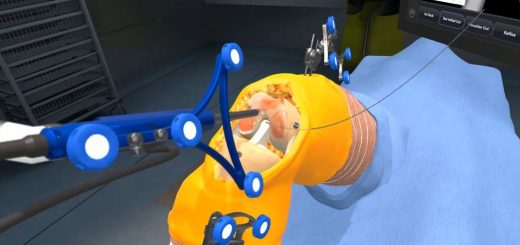VR Gives Caregivers First-Hand Experience of Memory Loss
Published · Updated
Have you ever wondered what the world looks like through the eyes of someone with memory loss?
One aging services organization, Chicago Methodist Senior Services (CMSS), hopes to find out through its partnership with cutting-edge virtual reality organization, Embodied Labs.
The two organizations have teamed up to begin the development of Embodied Labs’ latest VR module designed to simulate memory loss for caregivers and health professionals. Bill Lowe, CEO of CMSS, shared how this collaboration and CMSS’ investment with Embodied Labs will enhance care for those with memory loss at CMSS and beyond.
“Our work with Embodied Labs is going to put caregivers in the shoes of those with memory loss,” said Bill Lowe, CEO of CMSS. “This groundbreaking VR technology will bring a new level of understanding to the care we provide to those with memory loss.”
As they develop the technology, Embodied Labs is conducting interviews of CMSS staff and residents as well as shadowing residents with memory loss to better understand their world, from mealtimes to activities. Carrie Shaw, founder and CEO of Embodied Labs said that through this research, they will have first hand insight to inform the VR experience.
“When we develop an Embodied Lab, the most important part of our design process is to understand the patient perspective of the condition we are simulating,” said Carrie Shaw, CEO of Embodied Labs. “The foundation for our next VR experience is to communicate – through the first person perspective – what it is like to have Alzheimer’s disease. The time we spent with the CMSS residents gave us invaluable insight into how people at CMSS live life to the fullest while also facing the challenges brought on by this condition.”
Once developed, Embodied Labs’ VR technology will give caregivers and healthcare professionals a window into memory loss that they have previously never had.

Alzheimer’s disease is a complex condition that raises many caregiving challenges. Virtual reality storytelling has the unique potential to transport people into other worlds and perspectives, allowing better understanding. By allowing users to step into the shoes of someone experiencing Alzheimer’s disease at early, mid, and late stages, the next Embodied Labs module aims to not just teach about the pathology of the disease, but create a visual and sensory vocabulary for how people living with it may feel. The goal is to have caregivers and health professionals come away from the experience having uncovered a new understanding of how to communicate and care for those living with memory loss.
Embodied Labs released its first VR technology, “We Are Alfred” in 2016, which provided caregivers with a first-person look into what ordinary experiences look like with vision and hearing impairments. And, while Shaw has always been interested in the intersection between health and visual communications, her connection to memory loss is even more personal since her mother was diagnosed with early onset Alzheimer’s disease when she was 19 years old. Shaw, like many others, questioned if she was giving her mother the best care possible. Was it possible to truly understand what the world looked like through her mother’s eyes?
“I constantly wished that I could step into my mom’s world,” Shaw said. “I felt like if this were possible, I could better understand my mom’s disease and be a better caregiver because of it. As I pursued the question of how to experience another person’s perspective to better understand health, I discovered the medium of virtual reality and met my now co-founders along the way. In our first year as a company, we have seen how Embodied Labs’ VR modules have helped caregivers immediately understand what their patients, residents, or loved ones are experiencing and this has empowered them to be more effective providers.”
Her work with CMSS is helping to bring her vision of helping those with memory loss through VR to reality. This will also help foster an environment of care and understanding for all people with memory loss.
The CMSS staff has already completed training on “We Are Alfred,” a module about advanced macular degeneration and hearing loss. Next, they will complete a companion piece called “At The Peripheral,” an immersive documentary that follows real people who are living with these conditions. CMSS will be the first to train their staff with Embodied Labs’ next program, which will be about Alzheimer’s disease and released in the fall.
For more information on Chicago Methodist Senior Services, visit cmsschicago.org. To learn more about Embodied Labs, visit embodiedlabs.com.






What do you think?
You are the first to add a thought